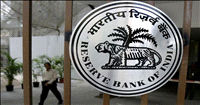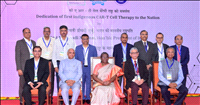Tech firms, civil liberty and privacy activists urge Obama not to weaken encryption
20 May 2015
Around 140 technology companies, civil liberty and privacy activists called on the White House yesterday to not weaken encryption or include law enforcement "backdoors" on technology products.
This comes as the latest development in a dispute between Silicon Valley firms and the US government, which was seeking ways to access encrypted phones and other devices to close in on criminals and terrorists.
In a letter to president Barack Obama, the signatories urged the administration "to reject any proposal that US companies deliberately weaken the security of their products."
"Strong encryption is the cornerstone of the modern information economy's security," the letter said.
"Encryption protects billions of people every day against countless threats be they street criminals trying to steal our phones and laptops, computer criminals trying to defraud us, corporate spies trying to obtain our companies' most valuable trade secrets, repressive governments trying to stifle dissent, or foreign intelligence agencies trying to compromise our and our allies' most sensitive national security secrets."
The letter came in response to pleas by the FBI and National Security Agency to allow US law enforcement and intelligence services access to encrypted devices as part of lawful investigations.
According to commentators, it was only the latest salvo in an ongoing battle over data encryption.
On one side of the battle are ranged companies like Apple and Google that encrypt data communications between users.
According to the companies, data encryption of the kind was not only justified, but necessary.
According to law enforcement officials, including FBI director James Comey, the data encryption on applications like Apple's iMessage instant-messaging software, provided a gateway for criminals to communicate with each other without fear of law enforcement oversight.
Apple's iMessage had been a special concern to Comey and others pressing for stronger oversight. The instant messaging application allowed iOS and OS X users to text each other messages using end to end encryption developed by Apple in which only the user held the key that would decrypt those messages.
This would lead to a scenario in which the US government could technically obtain a warrant for a user's data, but would not be able to access that data since Apple had no way of retrieving it.
Similar data-encryption was running on Google's Android, the world's most popular mobile operating system.
Between them, Apple's iOS and Google's Android owned 96 per cent of the worldwide smartphone market in 2014, representing over 1.2 billion devices.













.jpg)






.jpg)









